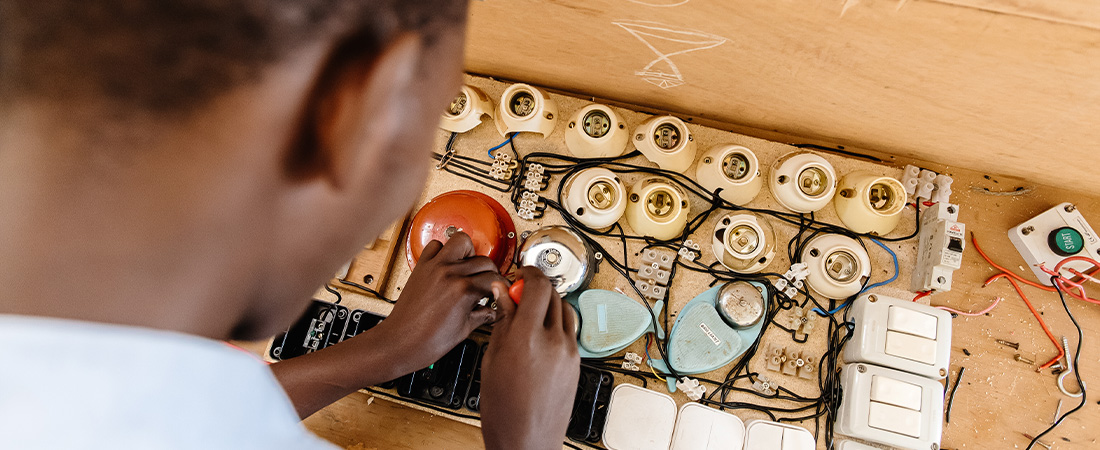EDC Partners with the LEGO Foundation to Promote Play

EDC will be the research partner for the Learning through Play with Technology initiative, a five-year effort to fuse play, technology, and learning for children in schools around the world. The initiative is funded by the LEGO Foundation.
EDC will lead a team of researchers to understand how educators can incorporate creative coding, robotics, making, and tinkering into a diverse set of education contexts, including classrooms with limited access to the Internet and technology tools. Starting with Brazil, Rwanda, and Kenya, the goal of the research is to identify promising practices that help ministries of education scale up technology-enhanced, play-based learning to hundreds of thousands of children in a variety of education environments.
“Schools across the globe increasingly are bringing technology into their classrooms, but that technology often reinforces traditional teaching practices or sits unused,” says EDC’s Megan Silander, who is leading the research. “We are curious about what happens when educators and children combine authentic play with technology tools in these different contexts, and how to take these interventions to scale.”
The work is being done in partnership with Participate, the Lifelong Kindergarten Group, Scratch Foundation, the Center for Engineering Education and Outreach at Tufts University, the Tinkering Studio at the Exploratorium, IREX, Right to Play, and Brazilian Creative Learning Network, as well as local educators and researchers where the initiative is taking place.
In partnership with the LEGO Foundation and Participate, EDC will also support a vibrant global community of practice for partners, researchers, and educators to collaborate around lessons and create a space of knowledge sharing to further the impact of the Learning through Play initiative.
“We are looking forward to learning from our partners and researchers, all of whom bring substantial knowledge to the project,” says Silander. “Testing and scaling these ideas across diverse contexts, cultures, and education systems is going to be fascinating. And we are committed to sharing our findings to help parents, educators, and ministries understand how playful, technology-infused experiences can enrich and deepen children’s learning.”